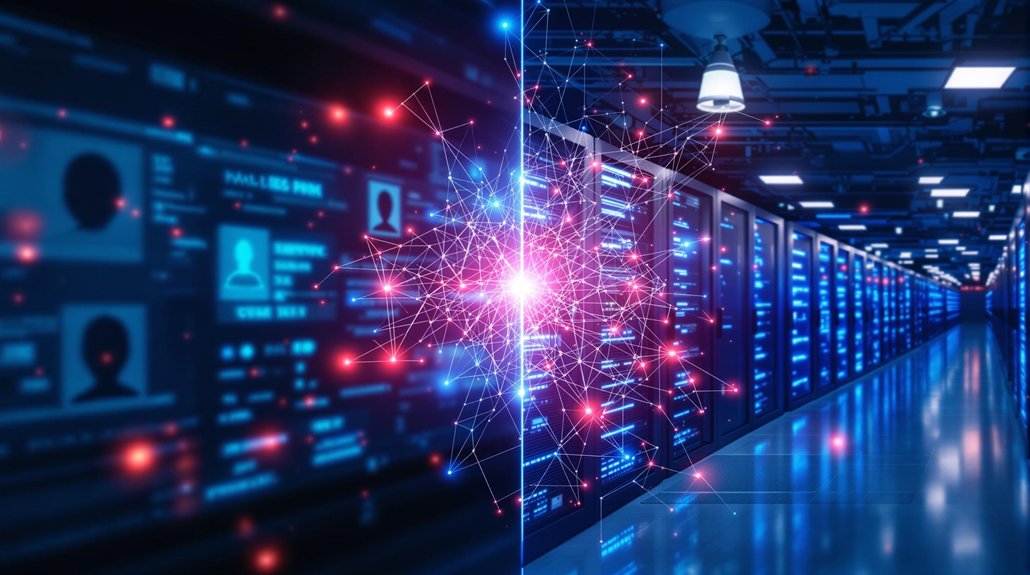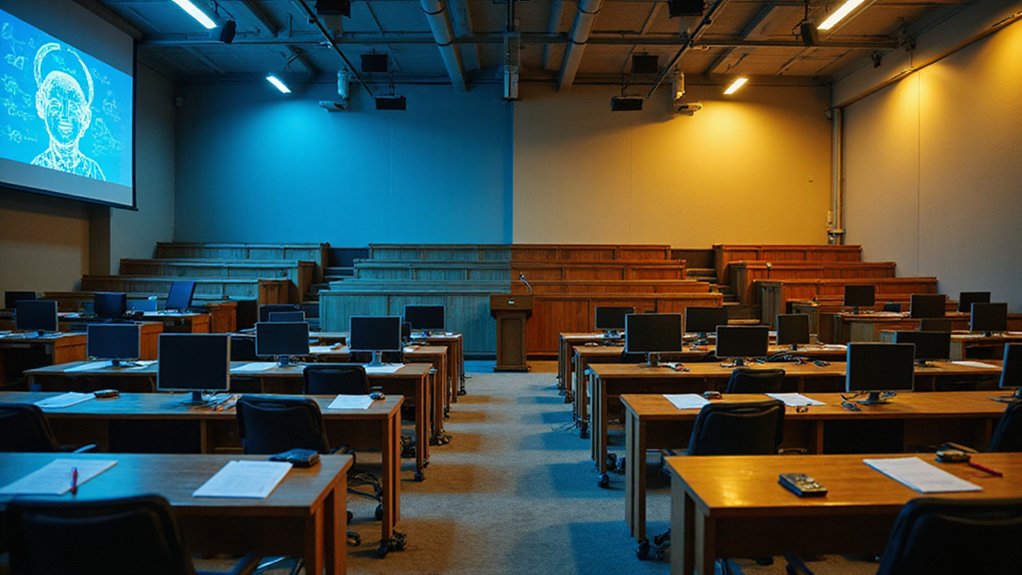American teens are widely adopting AI for educational purposes, with 63% using chatbots for schoolwork. While most view exclusive AI use as cheating, they’re finding ethical ways to leverage these tools for brainstorming, summarizing complex topics, and improving STEM understanding. Only 30% of parents know their kids use AI for school, creating a knowledge gap. Clear guidelines from educators remain scarce as students navigate this new technological frontier on their own terms.
As technology continues to transform education, a new study reveals that U.S. teenagers are increasingly turning to artificial intelligence tools to enhance their learning experience. The research shows that 63% of teens are using AI chatbots or text generators for school assignments, while 57% utilize AI-enhanced search engines for various academic purposes.
These digital natives aren’t simply using AI to avoid work. More than half of surveyed teens report using AI for brainstorming ideas (51%) and gathering information (53%). Many see AI as a “modern approach to learning” rather than a shortcut to avoid educational effort. They’re also exploring creative applications, with 23% using AI-powered image generators for school projects.
Teens regularly use AI tools to summarize complex topics, generate ideas for essays, and better understand challenging STEM concepts. Language learning has become more accessible through AI translations and contextual examples. The technology appears to be fostering significant thinking skills as students learn through trial and error with AI systems. Much like healthcare providers who have seen administrative paperwork reduced by 30-50% with AI integration, students are finding more time for creative learning.
Despite widespread adoption, ethical considerations remain important. About 60% of teens consider using AI exclusively as cheating, showing awareness of academic integrity. Many recognize the need to balance AI assistance with personal effort and properly attribute AI-generated content. A recent survey of 1,006 teens aged 13-17 found that 44% of teens were likely to use AI for their schoolwork.
Parental awareness lags behind teen adoption, with only 30% of parents knowing about their children’s AI usage for schoolwork. Many teens turn to these tools to alleviate boredom and frustration when struggling with assignments. Teachers often lack clear policies about acceptable AI use, creating confusion among students about proper boundaries.
Challenges exist alongside benefits. Students worry about AI’s potential for bullying, spreading misinformation, and creating overdependence. The absence of clear guidelines in many schools complicates responsible use.
As AI tools become fixtures in education, open conversations between parents, educators, and teens about ethical usage will be vital. Rather than viewing AI solely as a threat to traditional learning, many educators now see potential for these tools to help students develop valuable digital literacy and adaptability skills that will serve them in an increasingly automated world.









